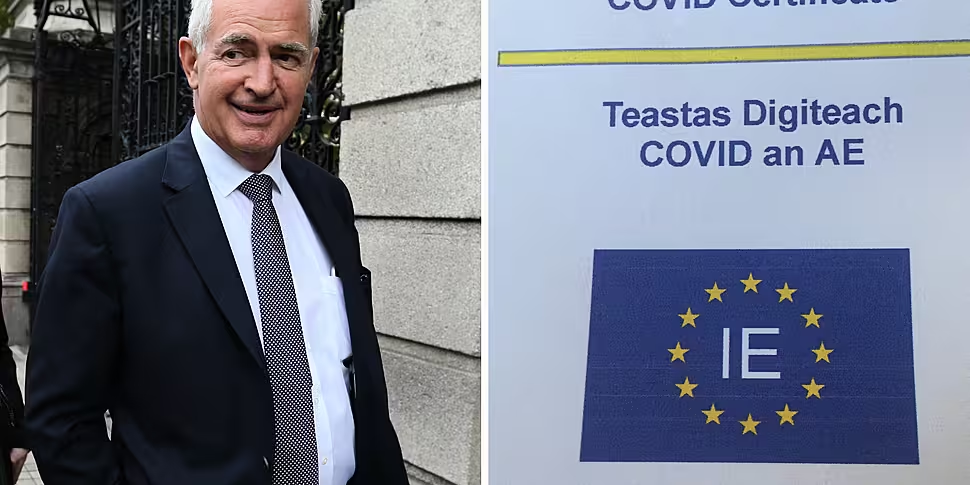Vaccine passes and antigen testing could be used to ease visitor restrictions to maternity units, according to Dr Peter Boylan.
However, he said he doesn't believe the resistance to the widespread use of rapid testing in Ireland is going to change.
He was speaking after the latest HSE guidance stated that space limitations mean restrictions on access for partners are still necessary for most antenatal visits.
A daily two-hour visit is allowed for women in multi-bed wards, with no restrictions for those in private rooms.
According to the guidance, antigen testing or proof of vaccination aren't required for partner access.
While many maternity units have now eased most restrictions on partner visits, the rules differ across some hospitals.
Peter Boylan, former master of the National Maternity Hospital, told The Hard Shoulder antigen testing shouldn't be dismissed as a way to allow more partner visits, despite the reluctance by officials around the wider use of rapid testing.
He said: "[The reluctance] has been the case right from the very beginning and since antigen testing became a thing. It has been very widely used in other countries.
"It's disappointing but not surprising... we can forget about ever having antigen testing being used in this country as a way of facilitating greater involvement.
"But with more than 80% of the adult population now fully vaccinated, I think that's probably the way to go. Perhaps vaccine passports would be a way to allow a little bit more visiting."
He said he can't understand the reluctance to use rapid testing in Ireland, but he doesn't believe the situation is going to change.
However, he said Ireland has done a "phenomenally good job" in vaccinating people, which he believes will be the answer to easing restrictions in the long term.
Visiting restrictions
Dr Boylan said Holles Street has been able to 'completely liberalise' visiting for partners, but other hospitals are not in the same situation.
He explained: "In regional units, a lot of maternity units are part of the general hospital - where there are going to be people who are quite sick. That presents greater challenges.
"Maternity units need to be separate from the general hospitals - close to them and co-located, but completely independent and separate.
"The vast majority of women are perfectly healthy - there's nothing wrong with them, they just happen to be pregnant."
Dr Boylan said such infrastructural issues "speaks to the lack of investment in maternity services" over the past decade, suggesting "these are the chickens coming home to roost".
He said the restrictions have been very distressing for pregnant women and their partners throughout the pandemic, but hopefully vaccination rates mean "things will start to ease up a little bit".









